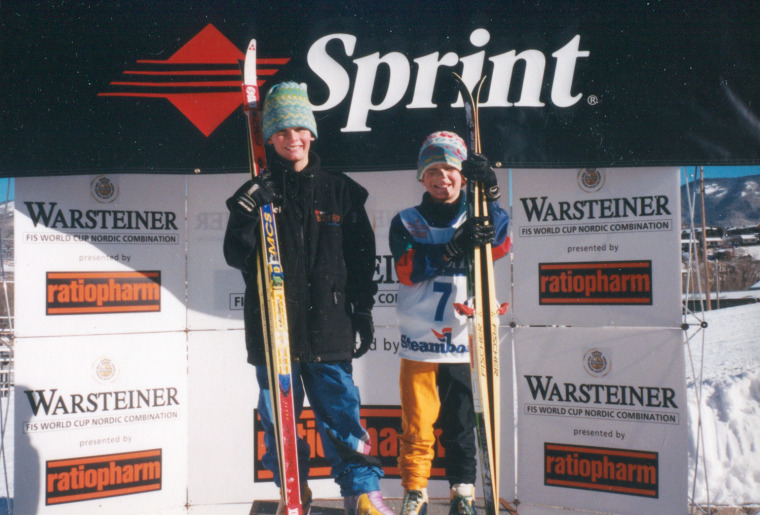
When the snowdrifts climbed up the side of their Steamboat Springs, Colo. home, Bryan and Taylor Fletcher would strap on their skis and jump off the roof into the deep snow, dreaming of becoming Olympic athletes. Their mom, Penny Fletcher, allowed her young sons to practice their jumps — until the concerned calls from the neighbors became too frantic.
Today, Bryan, 27, and Taylor, 23, are among seven sets of U.S. siblings competing in the Winter Olympics. Their event is the Nordic combined, which includes ski jumping and a 10-kilometer cross-country race.
One pair of Olympic siblings got the world feeling the family love this weekend: Canadian sisters Justine and Chloe Dufour-Lapointe won gold and silver in moguls. They held hands as the stood on the podium, while their older sister, Maxime — also an Olympic skier, though she didn't make it into the final round — watched proudly.
"It's the best feeling, they did it! They did it!" shouted their father, Yves.
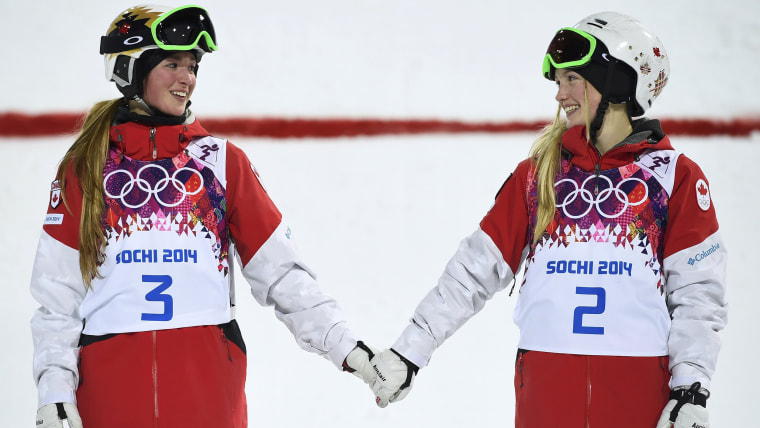
Raising one child with Olympic aspirations takes massive amounts of work and dedication; raising two (or more) kids who compete on the world stage seems beyond impressive. But these parents say there is no secret to having two Olympic-bound kids — just allow them to pursue what they love (and be prepared to attend a lot of practices.)
Penny Fletcher says that she encouraged her boys’ Olympic hopes since they were about 5 years old.
“I let them believe in their dream,” she says. “Very early on, the direction the boys wanted to head into [was clear]. I just felt that this was something that I couldn’t stop.”
Other U.S. siblings sharing the Olympic experience include cross-country skiers Sadie and Erik Bjornsen, curlers Erika and Craig Brown, snowboarders Arielle and Taylor Gold, hockey players Amanda and Phil Kessel, hockey players Monique and Jocelyne Lamoureux and ice dancers Maia and Alex Shibutani.
Steve Brown’s daughter, Erika, 41, and son, Craig, 39, both made their respective Olympic curling teams. Erika went to the Calgary Olympics in 1988 at age 15, when curling was an exhibition sport, and later participated in the 1988 Olympics. This is Craig Brown's first Olympics.
Much like the Fletcher brothers with skiing, the Brown siblings grew up surrounded by curling. Older sister Erika started on the ice at 6, after watching her parents, who partnered to win two national championships, curl in leagues around Wisconsin.
“It is a family endeavor. We’re all chasing the same dream,” explains Steve Brown, who is a two-time Olympic coach, the current coach of the US Paralympic Wheelchair Curling Team, and a three-time men’s curling champion.
Just as Taylor Fletcher followed in brother Bryan’s skis, Craig Brown followed Erika into curling. And, the siblings motivate each other. Linda Lamoureux witnessed her twin daughters, Jocelyne and Monique, 24 —known as the Hockey Twins — push each other throughout their lives. They’d spend hours skating on the neighborhood pond and running drills.
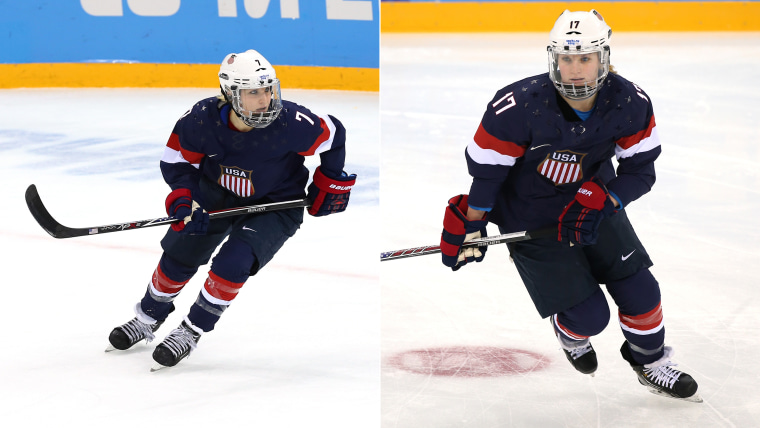
“They’re fortunate because they had their own training partner 24/7,” she says. “They know when they need to improve on something or didn’t have a good game and they are a good support system.”
This the second time the Lamoureux sisters are playing as forwards in the Olympics.
“It’s pretty humbling,” says Linda Lamoureux. “This is what they have been focused on and I guess their goal is to win gold.” The US Women’s Hockey Team won silver in Vancouver in 2010.
Jocelyne and Monique had four older brothers, all of whom played hockey, and Linda Lamoureux encouraged her children to excel in school and sports.
“I think if you don’t set your goals high you are not going to accomplish much. We kind of said to the kids when they were younger, ‘If you work really hard you might get a college scholarship,’ and I think the kids knew that they had to work hard,” Lamoureux says.
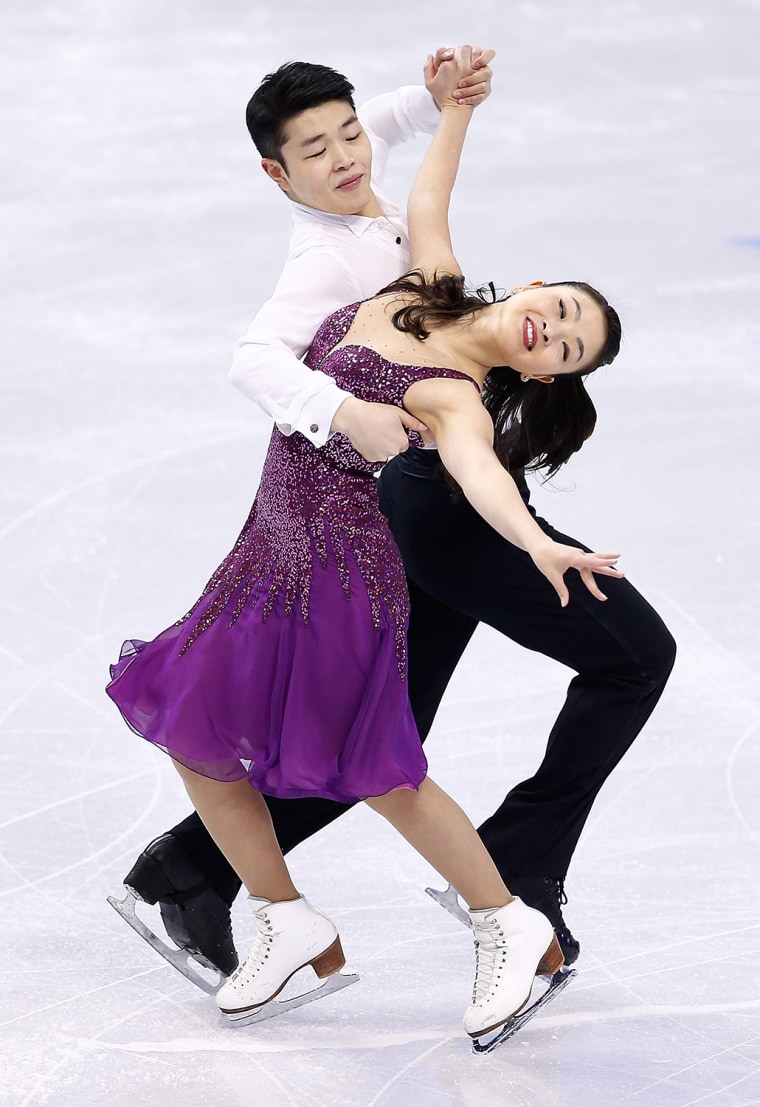
While they often support each other, sibling rivalry sometimes rears its ugly head. The Fletcher brothers —who, unlike the other U.S. Olympic siblings, are actually competing against each other — can’t room together because they need space.
“They have very strong emotions between the two of them and they are extremely competitive and both want to be right,” Penny Fletcher says.
Chris Shibutani’s children, Alex, 22, and Maia, 19, also feel competitive even though they skate as a team.
“Being brother and sister has certainly been challenging at times. Maia and Alex have very different personalities and strengths, yet they have come to realize that they … depend on each other,” Chris Shibutani told TODAY Moms in an email.
The parents all agree that most of the rivalry takes the form of constructive criticism. The siblings are the first to encourage each other.
“Was the rivalry intense? That was never the case. [They were] pulling for each other at the utmost,” says Steve Brown.
When there are two Olympic-caliber athletes in the family, dealing with the disappointments can be tough. Before the 2010 Olympics, Bryan Fletcher hurt his ankle. While he was recovering, his younger brother earned a spot on the U.S. team, the position that would have likely been Bryan’s.
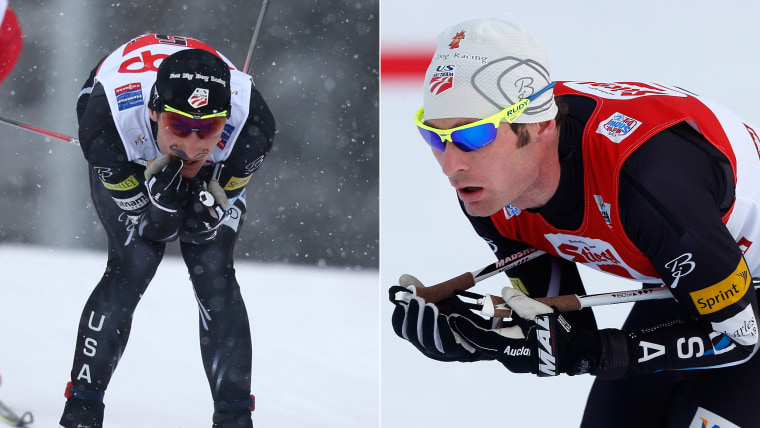
“I was smiling for one son and sad for the other son,” Penny Fletcher says. “I know it was difficult for [Taylor], however, he was so excited.”
Chris Shibutani says it can be tough watching one child skate badly even as the other hits all the marks.
“No one goes out and decides that they are going to skate poorly. Everyone goes out with the intention to do their best, but it is a performance sport, and things happen," he says. Like any parent, "We just try to be there to listen.”